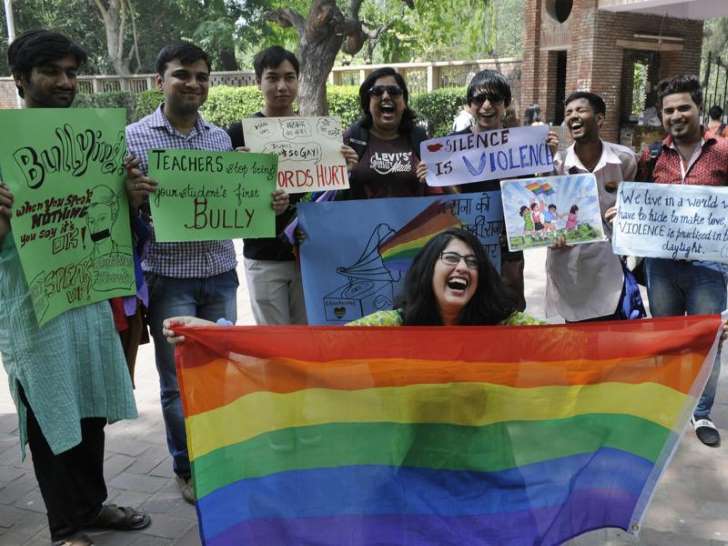
India/Pahichan – In a little over a decade, Lesbian Gay Bisexual Transgender (LGBT) issues have moved from the margins to the centre of national debates. Support for the repeal of Section 377 ranges from the Left to the Congress. But the BJP’s response has been confused at best and homophobic at worst.
The one voice that can clarify this confusion chooses to be silent. Each time there has been a need for the prime minister to break his silence and assure LGBT Indians of full moral citizenship, Narendra Modi has declined to speak.
The latest instance of the BJP’s deafening silence is its stand on the tragedy in Orlando, where the prime minister saw fit to commiserate with the victims without acknowledging that the shootings were in a gay club and the killer intentionally targeted the LGBT community.
RECOMMENDED: Pope says Church owes gays an apology
A commiseration without a willingness to deal with the factors that caused the tragedy lacks authenticity. A meaningful response would have acknowledged that the shootings were an attack on LGBT people and followed it up with a commitment to combat violence and discrimination against LGBT people in all spheres.
Such a response can work at two levels: The national and international. In India, the government must move to repeal Section 377 of the Indian Penal Code, which, criminalises LGBT lives.
At the international level, there is a new opportunity in front of India to affirm its commitment to tackle violence and discrimination on the grounds of sexual orientation and gender identity.On Thursday, India will vote on a resolution at the United Nations that seeks to establish an independent expert on sexual orientation and gender identity at the human rights council.
The resolution moved in June by six Latin American countries (Brazil, Argentina, Mexico, Chile, Uruguay and Colombia) and — for the first time in UN history — seeks to focus dedicated and systematic attention to the violence and discrimination faced by LGBT persons.
It will focus global attention on forms of human rights violation ignored for too long. It is a long overdue recognition of the fact that LGBT people are human beings and that the violence and discrimination inflicted on them worldwide must be addressed.
Read | New York LGBT bar becomes first US monument to gay rights
As a member of the UN human rights council, India is significantly placed to contribute to this historic moment. But how exactly will India vote on this resolution?
The Modi government’s record on LGBT issues is not a happy one.
India has either abstained or voted against LGBT rights at the international level. In September 2014, less than four months after Modi came to power, India abstained on a resolution on sexual orientation and gender identity at the council.
In March 2015, India joined Russia, Pakistan, Saudi Arabia, China and Iran in voting against the extension of benefits available to heterosexual couples to same-sex couples in the UN general assembly.
Read | Maharashtra censor for theaters demands 14 cuts for play on LGBT rights
This record doesn’t inspire much hope of a positive vote for the LGBT community. But there are good reasons why joining the opposition to LGBT rights and voting against the establishment of an independent expert would be wrong, both in legal and constitutional terms.
FROM THE ARCHIVES: US Supreme Court’s landmark ruling legalises gay marriage nationwide
The judgment by the Supreme Court in NALSA v Union of India acknowledges that transgender people have been treated shamefully and guarantees them the right to equality, expression and life.
The fact that the Supreme Court has decided to refer the Koushal judgment, upholding Section 377, to a five-judge bench earlier this year indicates that a rethinking on the British-era law is underway.
Read | How we label a crime says a lot about our own priorities
The question the government should consider is whether it wants to acknowledge LGBT people as full citizens or go along with a homophobic dismissal of the concerns of LGBT people as simply not worthy of the attention of the UN.
India could vote against the resolution and join notorious global actors in opposing LGBT rights such as Russia, Saudi Arabia and Egypt or vote for the resolution in accordance with the constitutional obligation of ensuring equal rights for all.
It is also likely that a procedural manoeuvre calling for no action on this resolution will be moved by states opposed to the resolution. A no-action motion is akin to saying the rights of LGBT people are so controversial that they should not even be discussed at the UN level.
Read | LGB likely to face mental trauma, engage in substance abuse: Study
If India votes for the no-action motion, it proclaims on the international stage that the violence and discrimination faced by LGBT people is a non-issue.
Either of these votes by India will be watched closely as they will be a fair indicator of how this government views its LGBT citizens and whether it believes that LGBT persons are human beings entitled to full rights under the Universal Declaration of Human Rights.
Arvind Narrain is an LGBT rights activist and a human rights lawyer | The views expressed are personal
Copy : http://www.msn.com/
Copyright © All right reserved to pahichan.com Site By: Sobij.